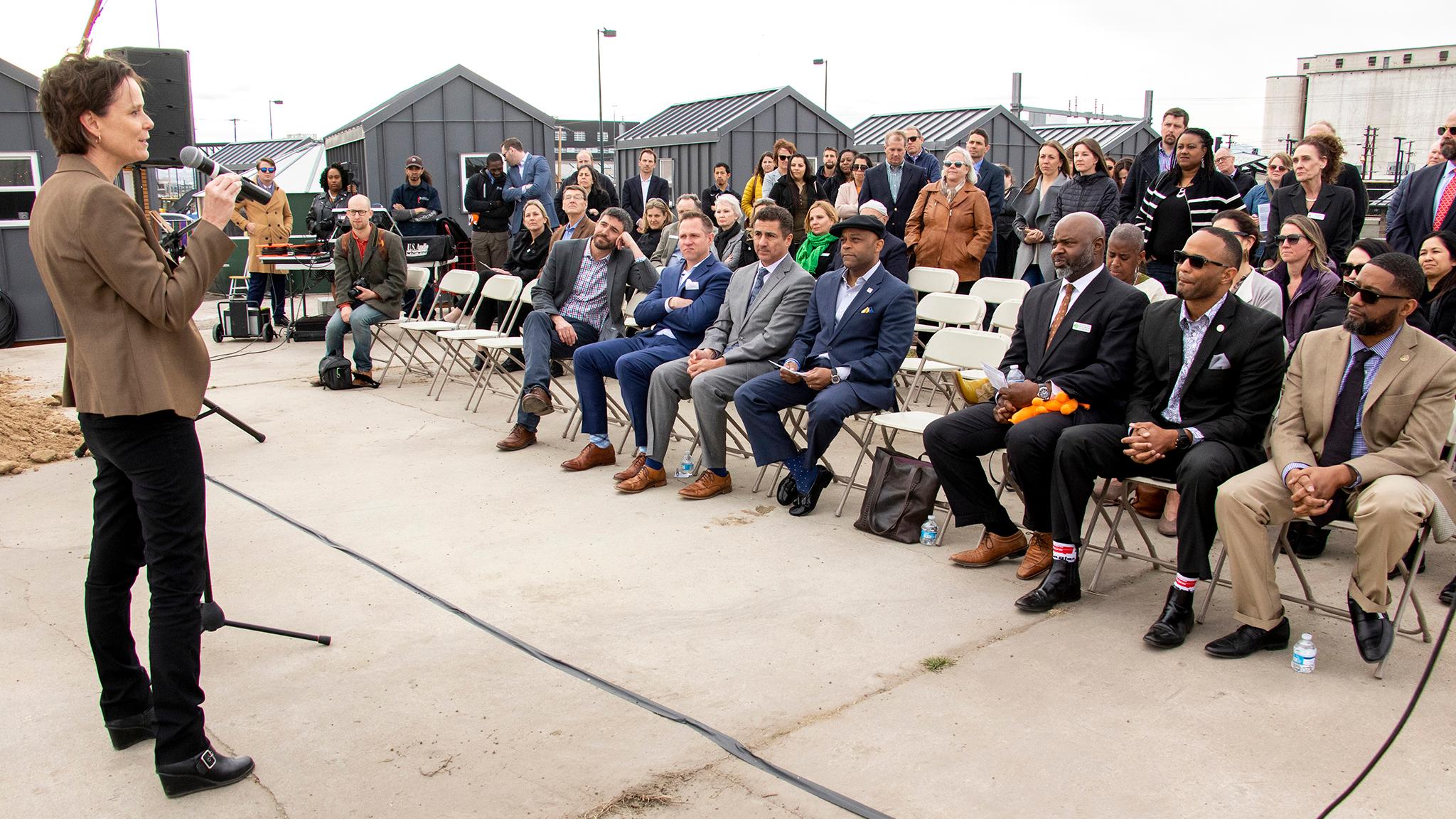Two groundbreakings, two models for beating displacement and creating affordable options for Denver renters and homebuyers.
A soon-to-be-homeowner, Habitat for Humanity of Metro Denver staff and their partners from the city and the private sector wielded shovels in Elyria-Swansea Thursday to celebrate plans for 32 three- and four-bedroom, energy-efficient duplexes on a block where Denver Housing Authority units once sat. The Urban Land Conservancy held a similar ceremony a few hours later and about a mile away at a site near the 38th and Blake RTD A Line commuter rail station where a 66-apartment development is to be built.
The audience had to weave past orange traffic cones and slow-moving heavy vehicles to get to the Elyria-Swansea site -- now just dirt pathways and deep holes, but houses are expected to be ready for the first homeowners by the end of this year. The construction activity wasn't for Habitat. It was for the Interstate 70 renovation that has brought disruption and fear of gentrification to the neighborhood.
Araceli Guerrero Ramos and her family have been tenants in Elyria-Swansea for 11 years. She said she had worried -- in the end needlessly -- that the three-bedroom, one-bathroom house they've been renting would be demolished to make room for a wider I-70. Then she watched the monthly rent nearly double to $1,200 in the last three years, though she says her landlord, a relative, is giving her family a deal. Steep housing cost increases are not uncommon as speculators bet on the working-class neighborhood attracting higher earners once we see an end to I-70 construction and upgrades to turn the nearby stock show grounds into the year-round National Western tourist attraction.
Guerrero Ramos and her husband Ernesto are buying a Habitat four-bedroom, two-bathroom home. The mortgage payments will be about the same as the rent they are paying now for a smaller house. Their three children are excited about the prospect of having their own bedrooms, Guerrero Ramos said.
"This will be our first home as a family," she said before taking up a shovel for the groundbreaking. "We have a home as renters. But this is different."
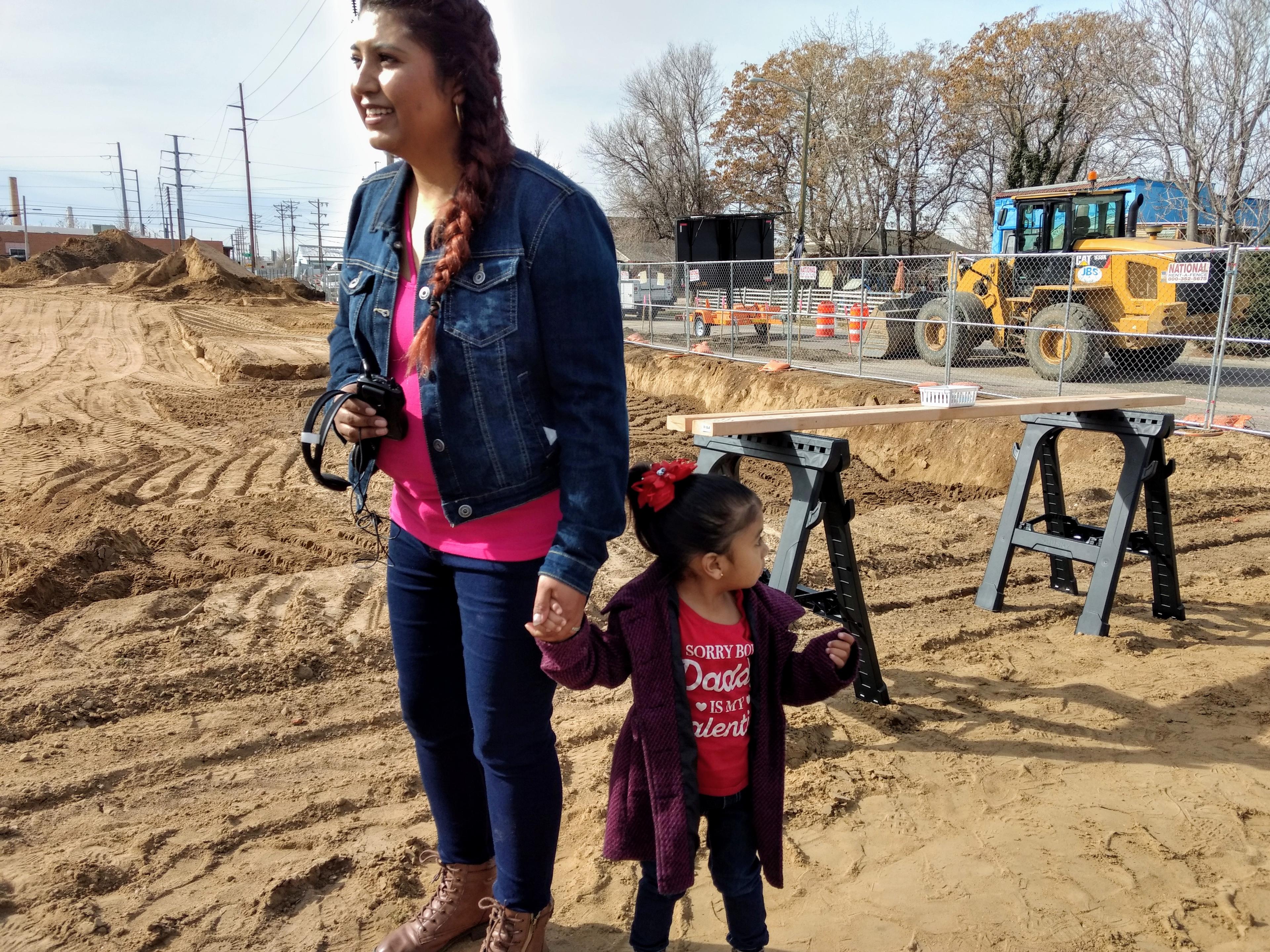
Habitat helps low-income families obtain affordable mortgages. To qualify a family must meet income guidelines. A family of five, for example, must earn at least $4,046 a month and no more than $6,475. Participating families must also attend buyer education classes and put in the "sweat equity" for which the faith-based nonprofit is known. Guerrero Ramos has already started on its 200 hours, putting in time at a ReStore, the Habitat shops that offer discounts on new and used appliances, furniture and cabinets; waiting tables at some of the nonprofit's events; and helping recruit neighbors who want to buy a home. Once construction starts in earnest in May, Guerrero Ramos was looking forward to acquiring new skills helping build her own home as part of her sweat equity commitment.
"I'll find out where to put the nails," she said, miming using a hammer. Guerrero Ramos, now a homemaker, has worked as an office cleaner. Her husband is a foreman for an arbor care company.
The site of their and 31 other houses was acquired by Habitat through a $1.75 million forgivable loan from the city. The 40-year-old nonprofit's recipe for permanent affordability also involves donations from private and faith groups.
The Urban Land Conservancy also relies on collaboration. The real estate nonprofit's development partner Medici Consulting Group won nearly $1.2 million in low-income housing tax credits from the Colorado Housing and Finance Authority to finance the 66-unit complex at 3773 Walnut St. known as Walnut Street Lofts. The project at the fast gentrifying intersection of the Cole and Five Points neighborhoods will have 30 one-bedroom, 32 two-bedroom and four three-bedroom apartments. Seven of the 66 apartments will be set aside for families earning no more than 30 percent of the area median income. No tenants can earn more than 60 percent AMI. Rents will range from about $400 for a one-bedroom to $1,200 for a three-bedroom.
The Walnut Street Lofts, expected to be completed next spring, also received a $600,000 loan and a $150,000 grant from CHFA's Capital Magnet Fund, last year. Denver Economic Development & Opportunity -- the former Office of Economic Development -- pitched in $1.35 million from the city's Affordable Housing Fund.
In addition to bringing together funders and developers, ULC acquires land and makes it available on 99-year leases that are automatically renewed for another 99 years. Such land trusts take a major cost out of developers' equations and keep projects affordable for generations.
"Land trusts are enormous, powerful tools," Mayor Michael Hancock said at the Walnut Street Lofts groundbreaking.
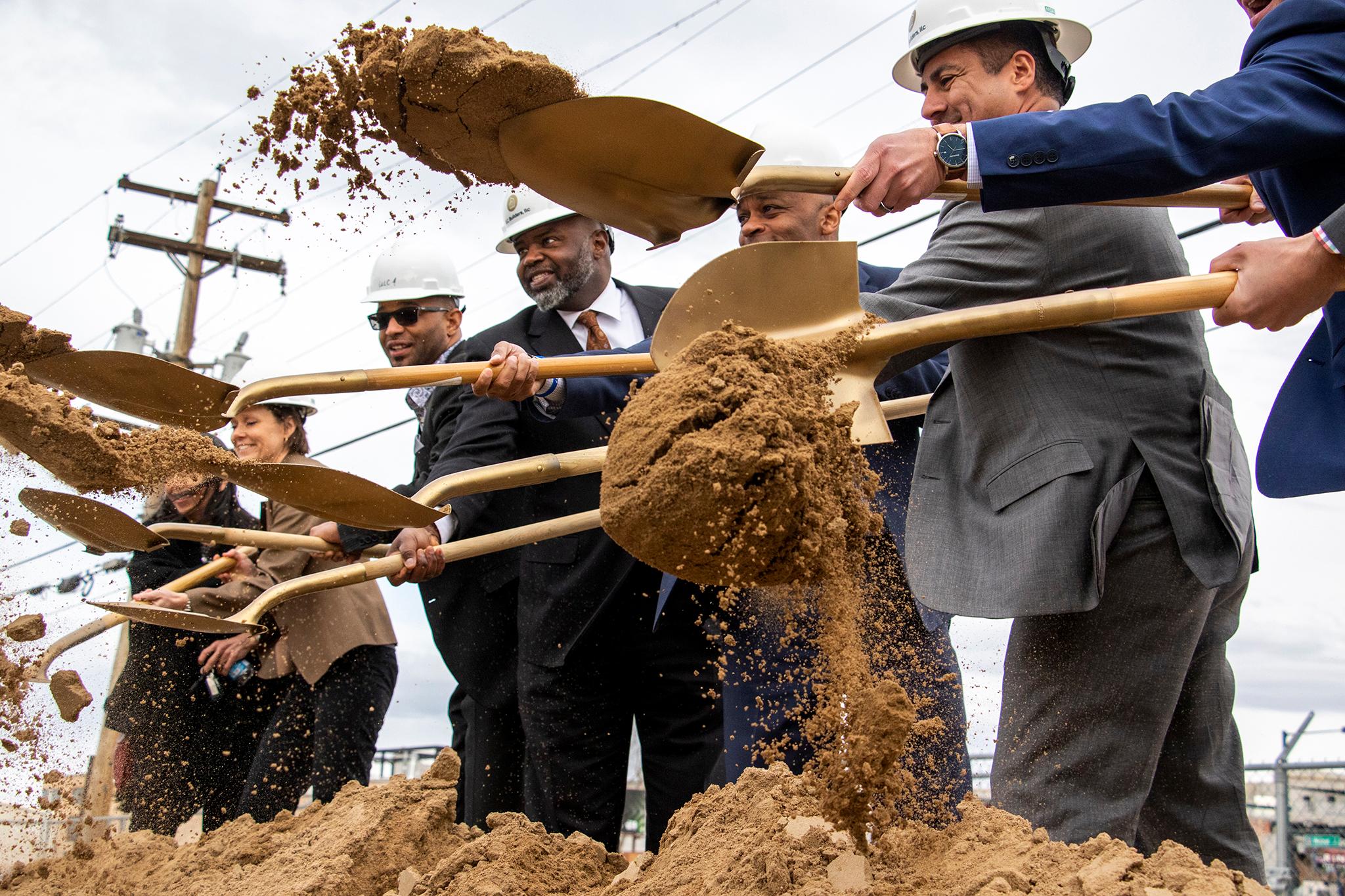
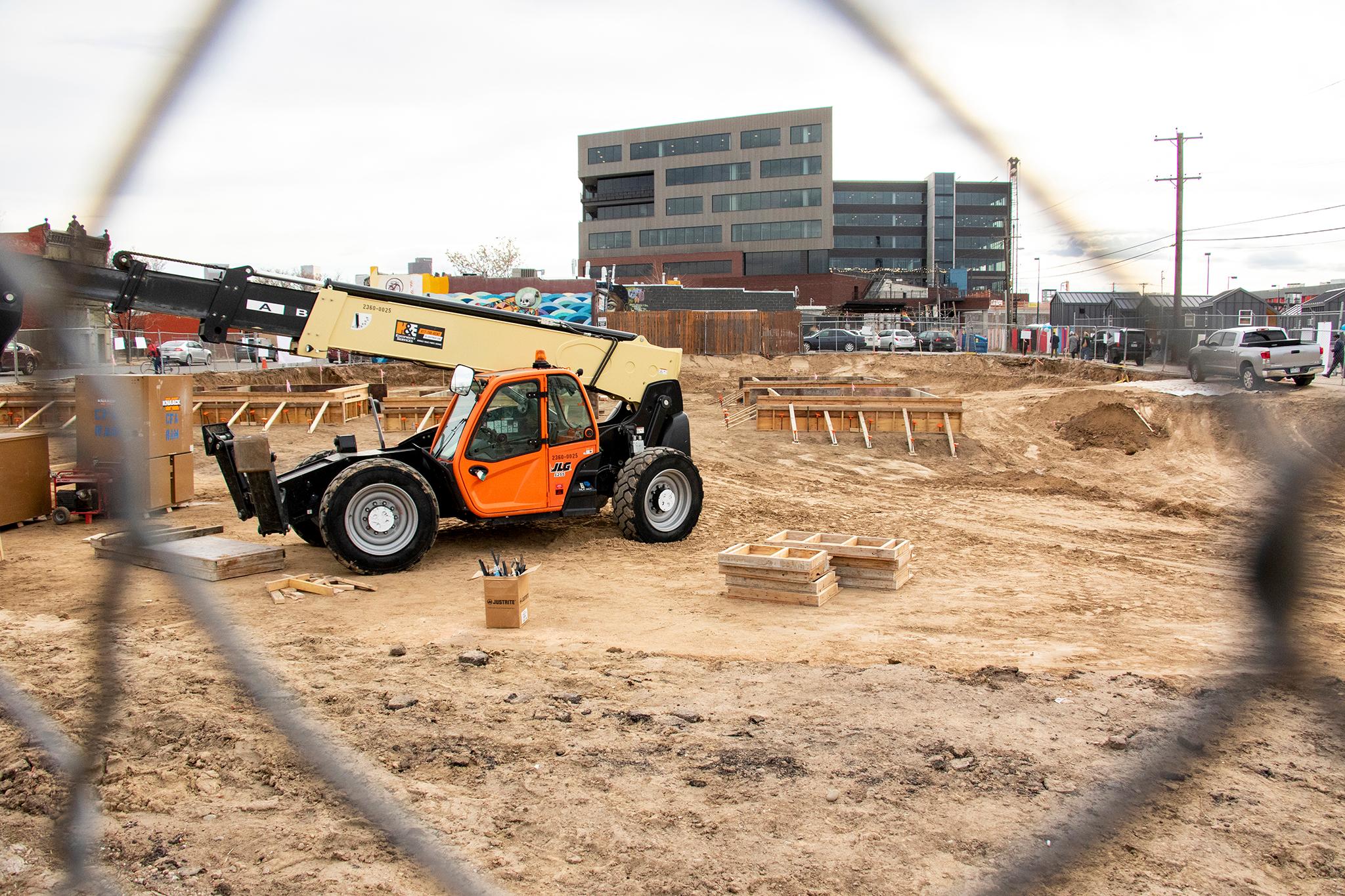
Hancock had also attended the Elyria-Swansea event, and at both sites was praised for his administration's commitment to affordable housing. The city has financed 1,145 affordable units now under construction at 13 sites throughout Denver, and 921 more are expected to break ground over the next year.
Planners stress the importance of building affordable housing near transit stations, which helps low- and moderate-income families get a toehold in desirable areas and cuts their transportation costs.
"You can't get more TOD (transit-oriented development) than this," Tom Gougeon, a founding board member of the Urban Land Conservancy, said at Thursday's Walnut Lofts groundbreaking, gesturing across the lot to the 38th and Blake station.
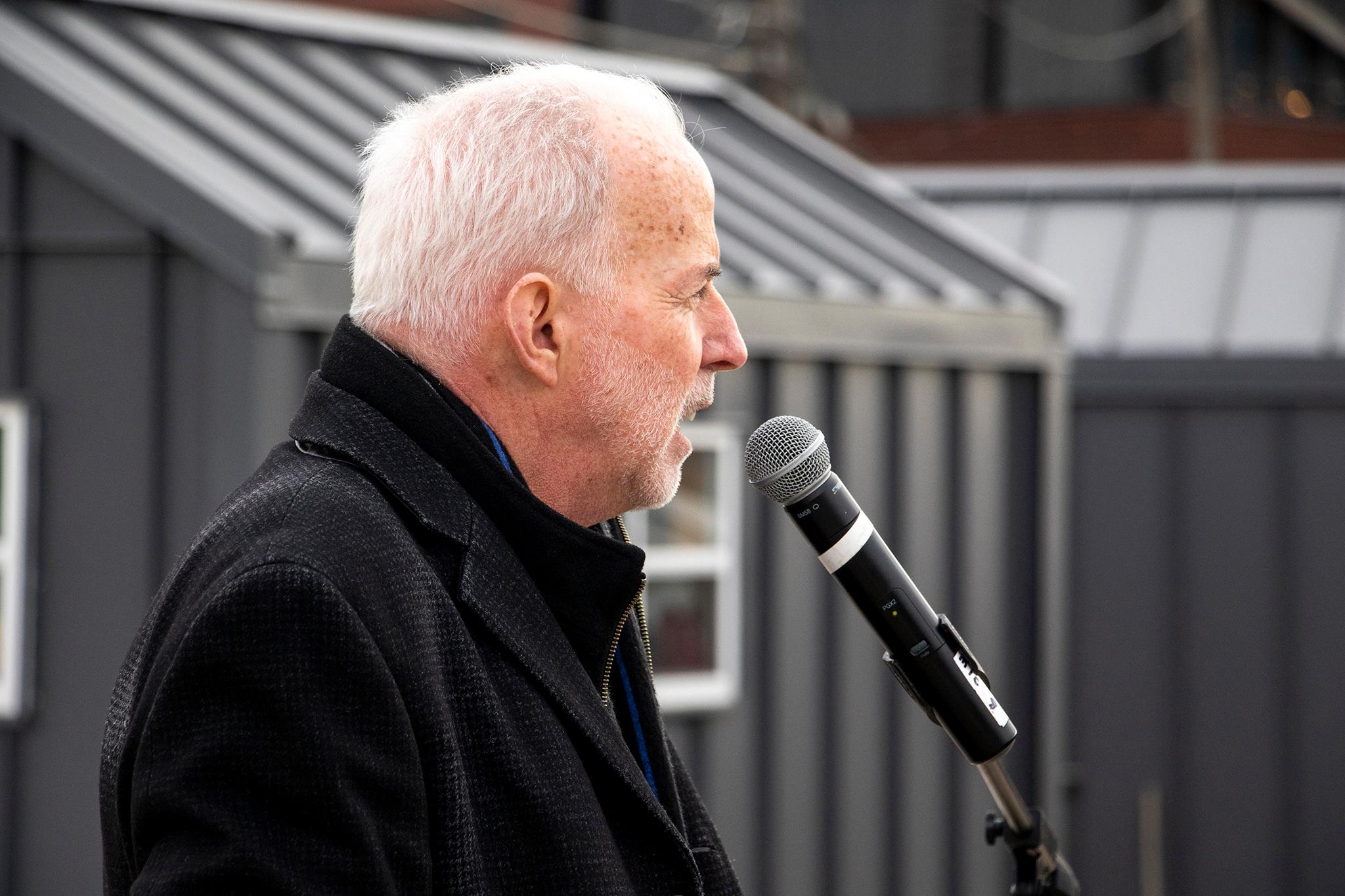
Residents of the neighboring Beloved Community Village also attended the Walnut ceremony. The Urban Land Conservancy for more than a year has given a home to the collection of tiny houses that is a shelter alternative. The village site is also slated for an affordable housing development, so its residents are searching for a new site.
Councilman Albus Brooks, whose district includes the Elyria-Swansea and Walnut Street projects, saw significance in the convergence on one lot of the Beloved Community Village that has already helped several people escape homelessness, the envisioned low- and moderate-income units of the Walnut Street Lofts, and a tower planned for another corner that will have market rate and affordable units.
"That is part of the continuum of affordable housing in the city," he said.

